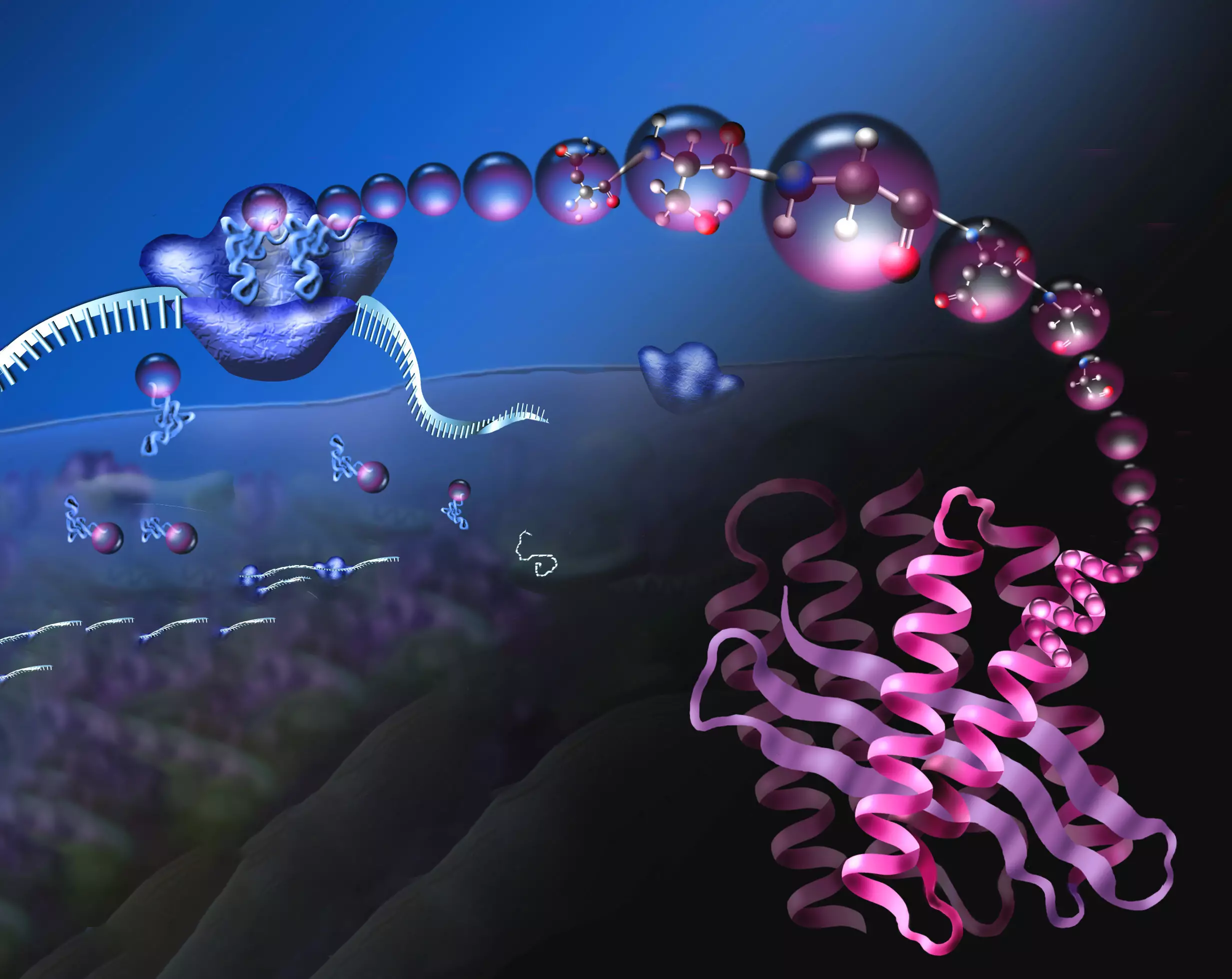

Scientists are becoming creative in engineering yeast or bacteria to produce chemicals that are useful. A group of chemists from different universities has a more ambitious goal of retooling the cell’s polypeptide manufacturing plants and modifying the ribosomes that spin amino acids into protein to produce polymer chains that are more elaborate. The goal of the National Science Foundation Center for Genetically Encoded Materials (C-GEM) is to make the translation system fully programmable to produce an unlimited variety of new molecular chains that could form the basis for new bio-materials, new enzymes, and new drugs.
The research enterprise centered at the University of California, Berkeley, is now reporting significant progress toward that goal. The team has tackled three major hurdles: how to reprogram cells to supply the ribosome with building blocks other than the alpha-amino acids that make up all proteins today; how to predict which building blocks make the best substrates; and how to tweak the ribosome to incorporate these novel building blocks into polymers. The team has published three papers in the journals Nature Chemistry and ACS Central Science.
The papers are the beginning of a playbook for reengineering the cellular synthetic machinery to produce new polymers, including bio-polymers and circular polymers, which are called peptide macrocycles, with predetermined or completely unforeseen applications. The technology C-GEM is developing could allow genetically engineered microbes to make an infinite variety of polymers blending the building blocks of silk and nylon, all of them new to chemists and with unique properties. The technology could also be used to make protein-like polymers more resistant to heat than natural proteins.
Researchers can evolve the polymers to perfect their activity, just as proteins have evolved over hundreds of millions of years to improve the fitness of cells and organisms. Such a system builds on the directed evolution of protein enzymes for which Frances Arnold, a UC Berkeley alumna, received the 2018 Nobel Prize in Chemistry. C-GEM aims to set up a way that researchers could evolve a polymer to something they want.
The team’s goal is to supply the ribosome with building blocks other than alpha-amino acids. The C-GEM team focused on the enzymes that load amino acid monomers onto transfer RNA (tRNA), the molecules that ferry amino acids to the ribosome. The researchers discovered that one family of tRNA synthetases could load tRNA with four different non-alpha-amino acids. The team used cryogenic electron microscopy (cryo-EM) to obtain detailed structures of three related monomers—none of them alpha-amino acids—bound to the E. coli ribosome. The details show how these monomers bind and provide hints on how to alter the monomers or the ribosome to improve the ribosome’s ability to use them to build novel polymers. The team emphasized that all of these tweaks to the ribosomal system must work inside a living cell independently of the normal ribosomes so that the production of new polymers does not interfere with the day-to-day protein production necessary for life.
Foreign direct investment (FDI) in developing nations has long been heralded as a path to…
As spring beckons in April and May, stargazers have the unique opportunity to witness nature's…
Active matter, a term that refers to systems where individual components can consume energy to…
In a groundbreaking development, a research team led by Prof. Chen Changlun at the Hefei…
The inevitability of aging is experienced differently across individuals, influenced by a complex interplay of…
When we delve into the cataclysmic events that led to the destruction of Pompeii almost…
This website uses cookies.